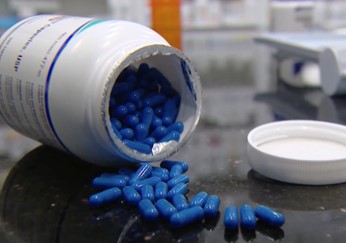
Drug makers Hike Prices on Hundreds of Brand-Name Drugs
Starting Thursday, the government will begin negotiations on 10 drugs covered by Medicare this week. But those new prices won’t go into effect until 2026.
By Mary Chastain – January 31, 2024
Drugmakers raised the prices on 775 brand-name medicines, including Ozempic, through mid-January. Put together, the median is 4.5%, which is higher than the inflation rate.
However, the government will begin negotiations on 10 drugs covered by Medicare this week. But those new prices won’t go into effect until 2026.
Pfizer boosted the prices on “124 unique drug brands” and 22 “at its Hospira arm.” The drugmaker had the most increases in January for the second year in a row.
Ozempic went up 3.5% to $970 for a month’s supply. Mounjaro, another diabetes drug also used for weight loss, increased 4.5% to about $1,070 a month.
Here are a few of the drugs that increased by more than 4.5%:
- Trikafta, a cystic fibrosis treatment: 5.9% to $26,546 for 28 days.
- Dupixent, an anti-inflammatory drug: 6% to $3,800 for a month supply.
- Biktarvy, popular HIV treatment: 4.9% to $3,980.
- Skyrizi, a psoriasis therapy: 5.8% to $21,017 for a dose.
- Eliquis, a blood-thinner: 6% to $594 for a month supply.
Bristol attributed inflation, research investment, and innovation to the rise in prices:
The price paid to the company will “remain nearly flat” this year because of rebates and discounts, she said, and half of patients pay $40 or less a month.
Pfizer referred questions about Eliquis to Bristol. A company spokeswoman speaking generally said the amount of money Pfizer receives for its drugs and vaccines has dropped for the past five years because of climbing rebates and discounts to health insurers and pharmacy-benefit managers.
I remember those rebates and discounts when I took Humira and Simponi for rheumatoid arthritis. I couldn’t believe the amount for one dose, but when I signed up for the company’s savings program, it dropped to $5. I don’t remember the exact number because I haven’t taken those in a long time. I’m now on Rinvoq.
Starting Thursday, the Medicare program can negotiate drug prices due to President Joe Biden’s Inflation Reduction Act (IRA).
HHS published in October:
The new law requires the federal government to negotiate prices for selected high expenditure drugs covered under Medicare, and provides enhanced financial protection against out-of-pocket drug costs for Medicare beneficiaries. Other provisions require drug manufacturers to pay rebates to Medicare if they implement price increases for certain prescription drugs utilized by Medicare beneficiaries that exceed the rate of inflation. Manufacturers must pay rebates to Medicare if the Annual Manufacturer Price (AnMP) increases for certain covered Part D drugs and either the Average Sales Price (ASP) or Wholesale Acquisition Cost (WAC) increases for certain covered Part B drugs exceed the rate of inflation.
The first 10 drugs on the list, according to NBC News:
- Eliquis, a blood thinner from Bristol Myers Squibb and Pfizer;
- Xarelto, a blood thinner from Johnson & Johnson;
- Januvia, a diabetes drug from Merck;
- Jardiance, a diabetes drug from Boehringer Ingelheim and Eli Lilly;
- Enbrel, a rheumatoid arthritis drug from Amgen;
- Imbruvica, a drug for blood cancers from AbbVie and J&J;
- Farxiga, a drug for diabetes, heart failure and chronic kidney disease from AstraZeneca;
- Entresto, a heart failure drug from Novartis;
- Stelara, a drug for psoriasis and Crohn’s disease from J&J;
- Fiasp and NovoLog, diabetes drugs from Novo Nordisk.
These negotiations will go through August 1. The Biden admin will publish final prices on September 1.
But don’t expect relief right away. The prices won’t go into effect until 2026.
